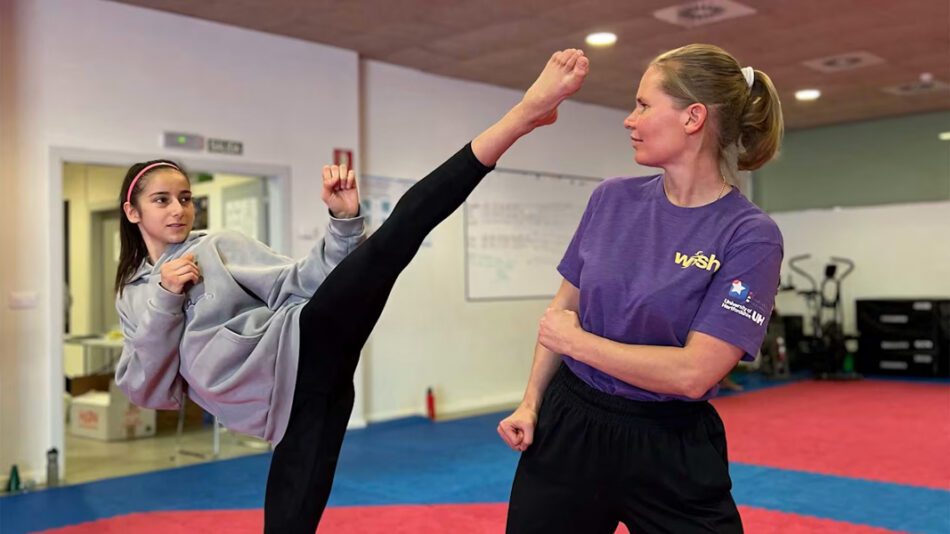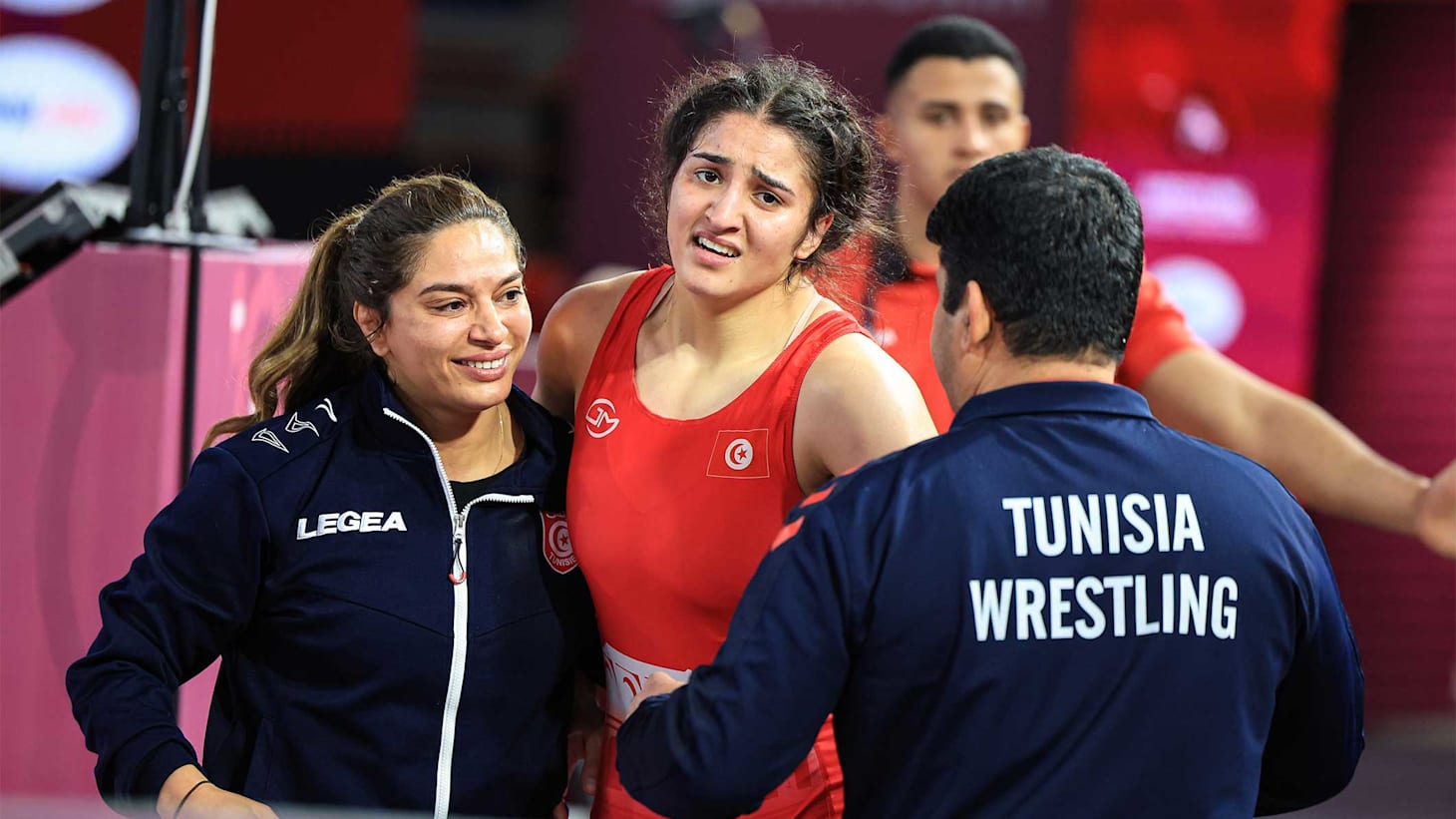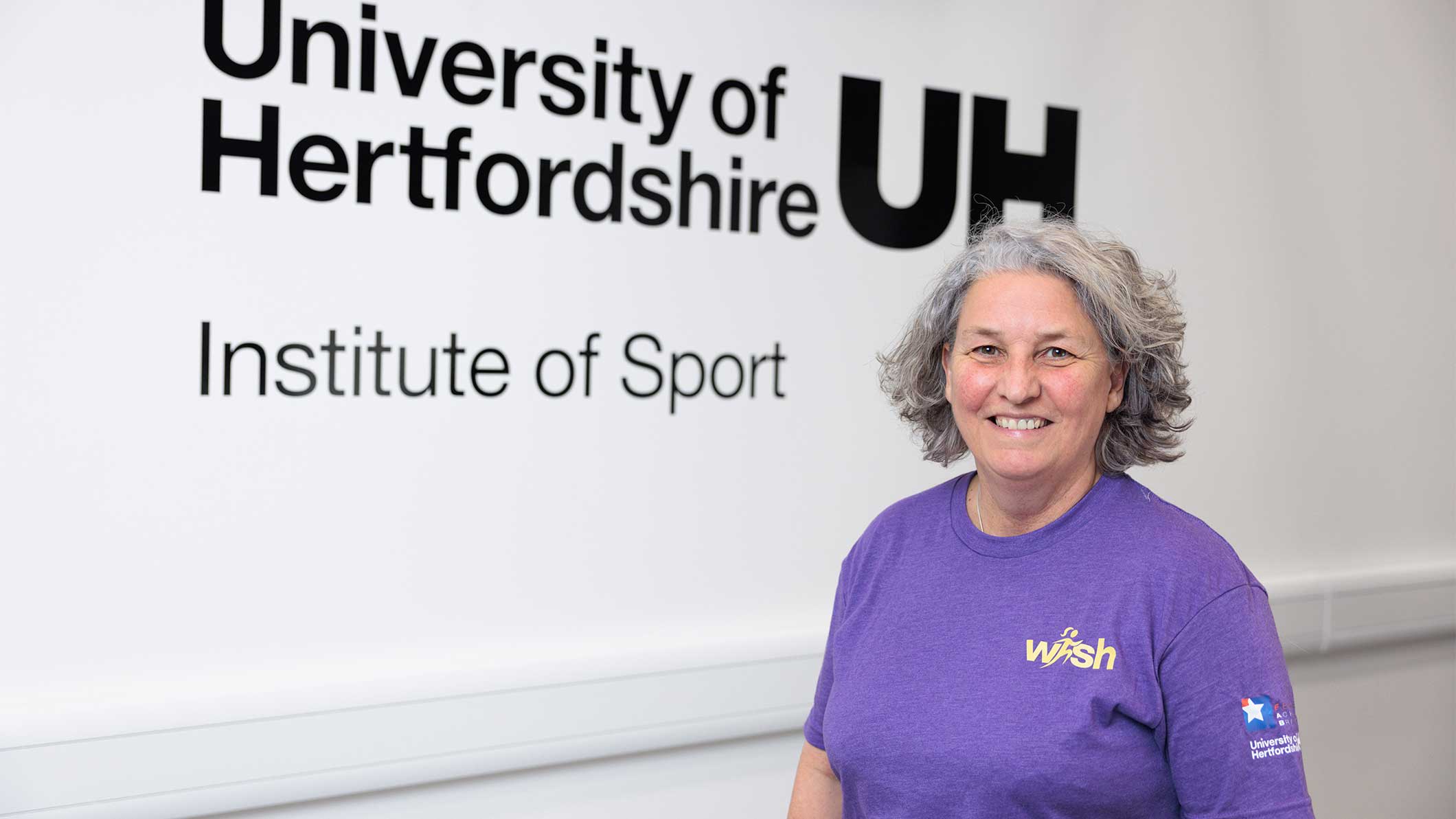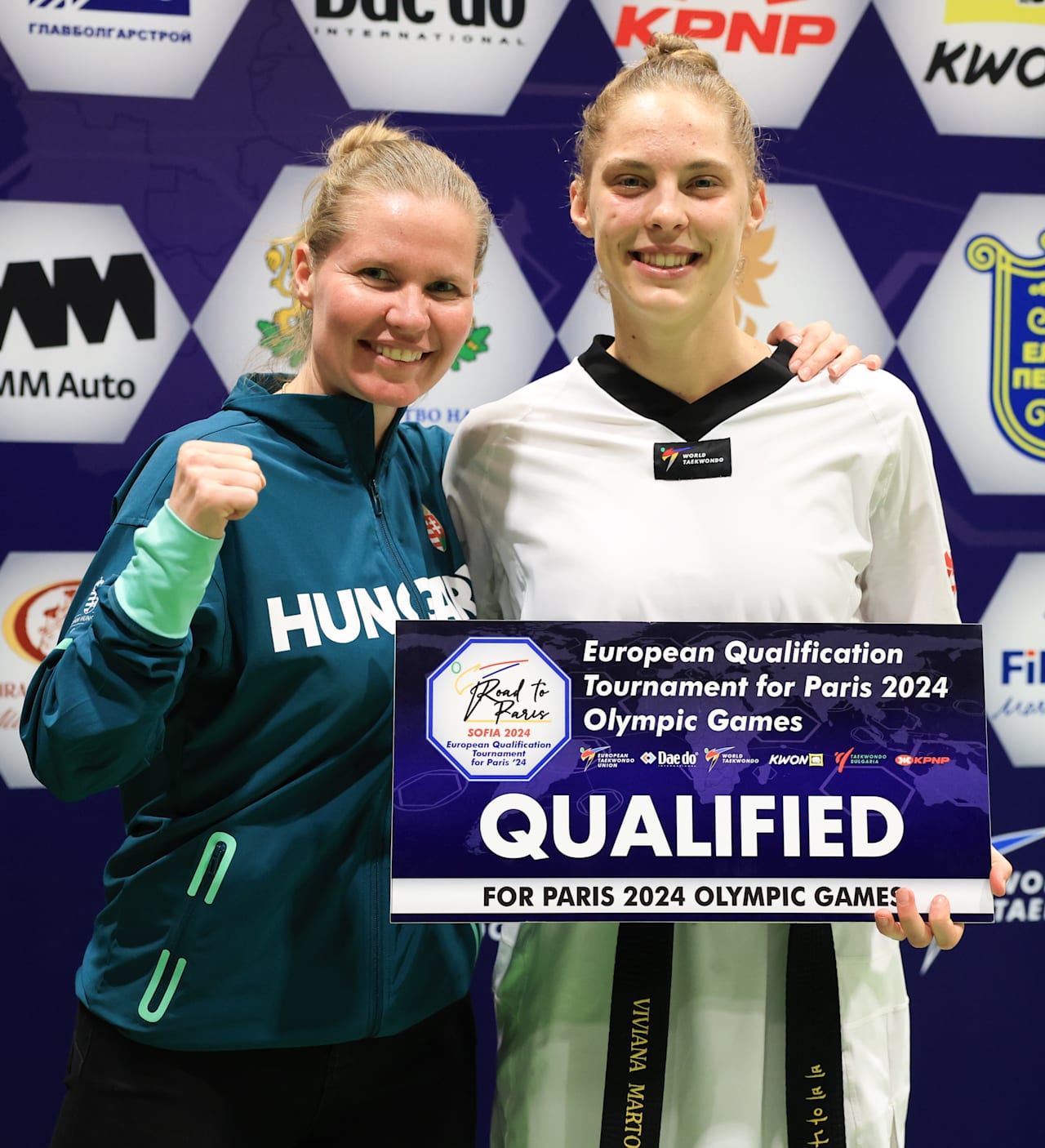WISH programme: Empowering female coaches on the road to Paris 2024

IOC
28 March 2024 – Beyond reaching gender parity for athletes competing at the Olympic Games Paris 2024, the International Olympic Committee (IOC) is also aiming to increase the number of female coaches through its Women in Sport High-Performance (WISH) pathway. With six participants of the programme already confirmed as coaches in Paris, Elizabeth Pike, WISH Project Director, explains how the programme is breaking down barriers to fix the system. Only 13 per cent of coaches at the Olympic Games Tokyo 2020 were women.
Six WISH participants already confirmed as coaches in Paris
At the past four editions of the Olympic Games, Marwa Amri represented Tunisia in the women’s freestyle wrestling competition, clinching a bronze medal in the 58kg event at Rio 2016. At Paris 2024, she will be bringing all her expertise to Tunisia’s wrestling team as a coach. Although Amri may be outnumbered by her male counterparts at these Games, her very presence indicates a growing number of female coaches.

There are a number of other female coaches still pushing to achieve their Olympic dream, such as Federica Tonon, who is currently working with Vanuatu’s beach volleyball team. Tonon is hopeful her athletes can book a place at Paris 2024 by winning the Asia Continental Cup in June.
Amri and Tonon have something in common – they are both participants of the WISH programme, which is funded by the IOC’s Olympic Solidarity programme, managed and hosted by the University of Hertfordshire and led by Elizabeth Pike.

The programme got underway in May 2022 after a successful pilot from 2019 to 2021. All four cohorts have now embarked on the 21-month programme, a mix of online learning, group tasks, dual mentoring and a residential, with the first cohort already having graduated in January this year. In total, the WISH programme will equip a total of 123 female coaches from 22 sports and 60 countries with the tools needed to take on roles at the highest level of their sport.
While Paris 2024 will become the first Olympic Games to achieve gender equality on the field of play, it’s a different story when it comes to coaching. Pike revealed six WISH participants have so far been confirmed as coaches in Paris, but she hopes for “many more” as qualification continues.

“We’re really pleased for them – it’s demonstrating the programme’s impact in promoting gender diversity,” she said. “The WISH team will be networking and supporting and showcasing these women at the Games and beyond.
“I think that gender parity in participation is already raising awareness of gender issues in sport; we’re seeing it all the time.
“I think all that advocacy and visibility of successful female athletes, and the coaches there, will start to challenge those stereotypes, highlight the importance of gender diversity in leadership, and encourage more women to get involved in coaching. Hopefully, through the support of initiatives like the WISH pathway.”

WISH coaches heading to the Olympic Games Paris 2024
- Marwa Amri – Wrestling – Tunisia
- Eva Niedielzska – Skateboard – Italy
- Maria Panetti – Modern Pentathlon – Italy
- Suvi Mikkonen – Taekwondo – Finland
- Lea Schairer – Skateboard – Germany
- Tine Deckers – Triathlon – Belgium

To view video: https://www.youtube.com/embed/9OlgJrR1vfw?rel=0&enablejsapi=1&origin=https%3A%2F%2Fwww.thenewsmarket.com
The barriers in the way of female coaches
Pike was a self-described sporty child and was struck by the systemic gender inequality in sports research while studying at university. She embarked on an academic career focusing on the power of sport for social inclusion.
Her background in sport has given her excellent insight into the barriers facing women in coaching, and Pike names recruitment, development and retention as the three main areas needing attention.
“Recruitment often happens through fairly informal channels and social networks, where men have tended to be advantaged,” she explained. “The other big issue is family responsibilities, and flexibility to be a working mum in a high-performance coach environment that involves huge amounts of travel and anti-social hours.”
“Moving on from recruitment to think about development, traditionally there have been fewer opportunities for women to have coaching and leadership programmes. Of course, because there haven’t been as many opportunities to be a high-performance athlete, that also means there have been fewer opportunities to transition from athlete to coach, which of course is a fairly common pathway. Women have also told us they haven’t always had the same mentoring opportunities.”
Elizabeth Pike, WISH Project Director
“Then, if we think about the retention, a lot of women are doing this at a time when they’re thinking about starting a family. So, if there isn’t the support for them in terms of parenting and family responsibilities, they won’t stay.”
“There’s also the need for more networking opportunities. People haven’t always advocated for women as coaches. There, it’s absolutely key to have male allies. We know that gender equality is not just an issue for women; it’s for all genders, and so needing male allies to actually advocate for women is really significant.”

To view click HERE
Creating a more inclusive coaching system
The WISH programme was designed in collaboration with academics such as Pike, as well as practitioners and coaches, and aims to equip women with the skills and confidence to break down these barriers and succeed in elite-level coaching.
“What we do is try to work with the women to identify what tools and resources and support they need to succeed at the high-performance level – as a coach, but also as a leader,” Pike said.
“The WISH programme is very much about not fixing the woman, but fixing the system. So we talk to them about how we can dismantle these obstacles to create this more inclusive and equitable system.”

To view video click HERE
Many participants have described their experience with WISH as “life-changing”, which Pike believes is because they have been provided with a wide-ranging network that they never had before.
“I’m really honoured,” she said. “I play a tiny part in helping to unlock the potential of very talented individuals, and in providing the opportunities for these women to realise their own coaching and leadership goals, but also in enabling them to network and collaborate.
“They’re the ones who are breaking down the systemic barriers for others. That’s what these women are doing.”
More information
Find out more about the IOC’s commitment to addressing the challenge and to supporting Olympic Movement stakeholders in finding pathways for more women to reach the highest levels of coaching





